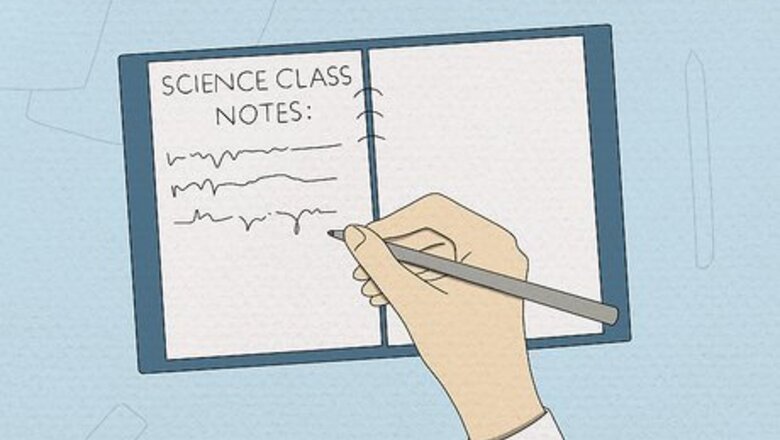
views
Developing Effective Study Skills
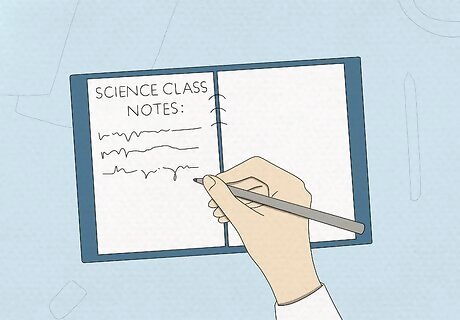
Take clear, organized notes. The notes you take in class will help you know what to study between classes. Don’t try to write down everything that the teacher says. Instead, pay careful attention to any information your teacher suggests is likely to be included on tests. Having help with taking notes is an accommodation many schools are able to make for learning disabilities. If you need this accommodation, check with your school’s office of academic accessibility. It may help you to record your lecture classes. Most smartphones have built-in voice recorders, or you can download a recording app. Recording a lecture will allow you to go back and hear it again.

Reread your notes after class. If there’s anything in your notes that confuses you, or which you feel might be wrong, check with your teacher or a classmate to ensure you have the right information. If you wait too long to read your notes, you may not remember enough of the class to make sense of them It may help you to rewrite your notes in a more condensed way. This tests your comprehension of the material in a way that ensures you’ve really grasped the meaning.
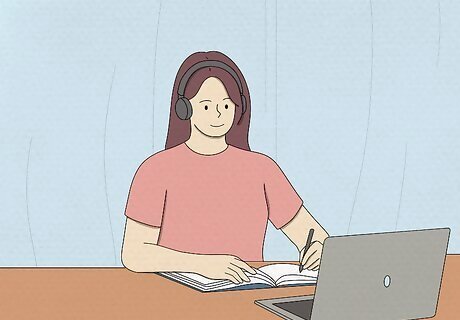
Find a quiet place to study. You’ll need to have a place where you can study that is free of disruptions and interruptions. This might be in your bedroom, in a library, or in another room. You’ll have to be honest with yourself about what your own needs are. For example, if you’re distracted by looking out the window, move your work area so that you can’t see outside from where you work. Wear headphones over your ears if you need to avoid being distracted by ambient sound. Some people benefit from using a fan facing the wall to generate white noise. This prevents distraction from random sounds. You could also download a free “white noise” app on your phone.
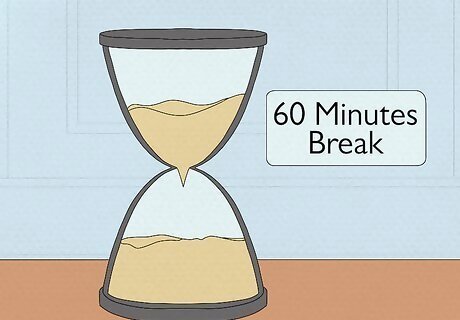
Study in blocks of time. Sitting and studying for unlimited lengths of time will lead to boredom and distractibility. Instead, a study in blocks, interrupted by short breaks where you stand up and move around away from your study area. You might set a timer to help you remember to take a break after 45-60 minutes. Then, set another timer to remind you to return to your desk. Usually, a break of 10 minutes is a good length.
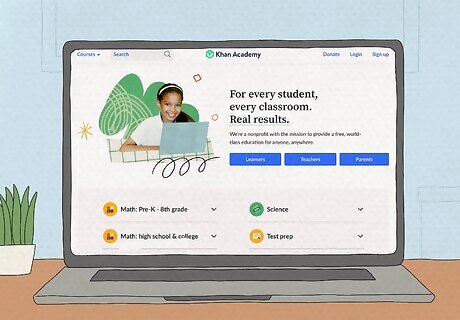
Refer to multiple sources. When you’re studying your notes, refer not only to the textbooks you’ve been given but use internet searches to supplement your understanding. Sometimes your subject matter will be better explained by another source. For example, Khan Academy is a good source for many scientific topics. You can use these sources to supplement your work. Using visual information, graphics, videos or other media can help you understand the lectures. If the resources that you find provide information that contradicts the science you’ve learned in class, make careful notes and ask your teacher. This might provide the basis for additional discussion.
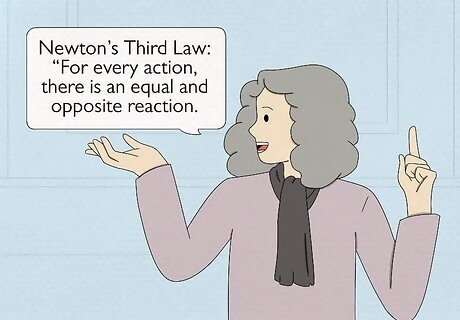
Learn the reasons behind the facts. Science might seem like a lot of facts, but each fact was found out by someone’s trying to answer the question “Why?” Learning how things fit together will help you make sense of the facts you’re learning in science class. For example, if you imagine a cannon firing, you may be able to better remember Newton’s Third Law: “For every action, there is an equal and opposite reaction.” But what does this mean? A cannon, being larger than a cannonball, pushes the ball a great distance when it’s fired. But at the same time, the ball exerts its own force on the cannon, so the cannon will also be pushed back few inches in the opposite direction. This is an example of Newton’s Third Law.
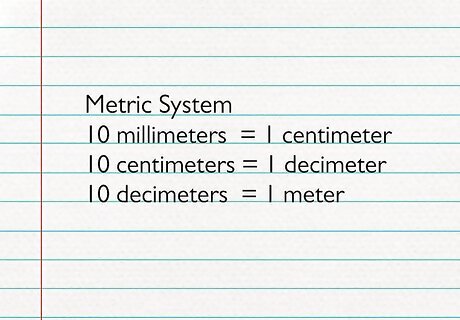
Become familiar with the metric system. A lot of science is done using the metric system since this is the system most commonly used internationally. The metric system is based on units of 10, and is used to measure length, mass, and time. For instance, 10 millimeters make a centimeter, 10 centimeters make a decimeter, 10 decimeters make a meter, which is the base unit of length in the metric system. The system that most Americans use is called the Imperial system, but even American scientists use the metric system at work. It can be helpful to learn basic conversions from Imperial to metric, particularly for chemistry.

Think about teaching someone else. When you think you understand the material, try to explain it to someone else. Teaching another person is the best way of knowing for sure whether or not you really understand the material you’ve been studying. If you can test your knowledge on a friend or family member, this will help you assess your own knowledge. It can help to imagine the kinds of questions you might ask if you were the professor. Try finding new examples for the information you’ve learned based in your own experience or knowledge.

Learn your own best study skills. Each person has slightly different techniques for effective studying. Your own study skills might include using (and creating) flash cards, or making stories out of the information you’ve been given. You might write your own songs to help you remember salient facts and details. If you study best with a group, form a study group with others in your class. Be careful not to use this group for socializing, but as an effective learning time. If you study best alone, make sure that you’re able to remain focused on your work without getting distracted by other activities.
Participating in Science Class

Read the assigned material. When your teacher assigns reading from a textbook or website, take time to read it before you come to class. If you don’t have time to read it well, it’s a good idea to scan it so that you have an idea of what it’s about. Even if you don’t know exactly what the professor will talk about during the class, you can at least know the general discussion that’s likely to take place. Many teachers will go over the same material you were assigned as the discussion in class. This means if you’ve read the assignment, you’ll be prepared to answer questions and engage in discussion.

Join to the best of your ability. It’s likely that your grade will be based partially on your ability to participate in class. This means that even if you are a quiet introvert, it will be important to find ways to participate in the overall class activity. Rephrase what other people are saying to make sure that you’ve understood their meaning. Ask questions when you don’t understand what’s being said. When someone asks a question to which you know the answer, raise your hand to reply. If you’re working within a small group, be an active listener. Pay attention to other students, and share your thoughts with them without dominating or demanding that they always do what you want.
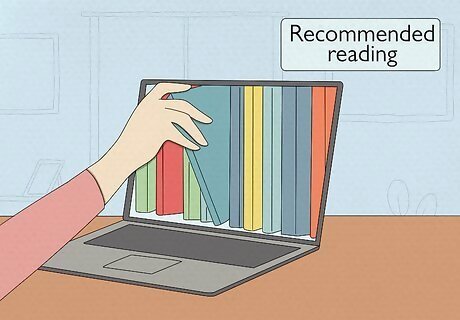
Pay attention to any recommended reading. If your instructor makes materials available online or recommends certain videos or websites, take advantage of these resources when you prepare for your labs. Many teachers provide online notes, review sheets, or other information for their students’ review. Always read these notes prior to class. Bring them to class with you when you come, and refer to them during class discussions. If your teacher uses a particular image multiple times, try to get a copy of that image and label it so that you can better understand it.

Pay attention to demonstrations. Science classes often have demonstrations done by the teacher or other students which you’re expected to be able to replicate. If you’re going to do well in science, it’s a good idea to pay close attention to any demonstration that’s done in class. Make sure your view of the demonstration isn’t blocked by someone else. Adjust your seating if you can, in order to see. If you need to stand up or move to another seat, ask your teacher for permission.

Practice good test-taking skills. When you take a science test, you’ll want to make sure you’ve correctly interpreted each problem before solving it. Draw a picture or a diagram if you need to. Then, when you’ve answered the question, check to see if your answer makes sense given the parameters of the question. If not, reconsider your approach. It can help to restate the problem in your own words so that you can be sure you really understand what’s being asked. Double-check your work for accuracy before you turn it in, and make sure your writing is legible.
Doing a Good Job in Labs

Be prepared for the lab. Many science classes include labs, which are demonstrations of techniques you’ve learned about in your textbook or lectures. Your teacher will expect you to show up ready to start your lab. Read the instructions for the lab prior to class. Mark places where you need clarification. You may also want to read over your notes from the last class, as the lab may correspond to the previous lesson.

Bring all necessary materials to your lab. In addition to your lab notebook, you’ll need sharp pencils, a blank pen, a calculator, and other materials as your instructor requests. Dressing appropriately will also be important for your success in labs. Wear clean, comfortable clothes. Because you’ll be standing during a lot of your lab class, it’s a good idea to wear comfortable shoes. Your lab may require safety goggles, gloves to cover your hands, acid-proof aprons or other safety clothing. Closed-toe shoes might be required for certain labs. It’s usually a good idea to avoid sandals, flip-flops, and other open-toe shoes.
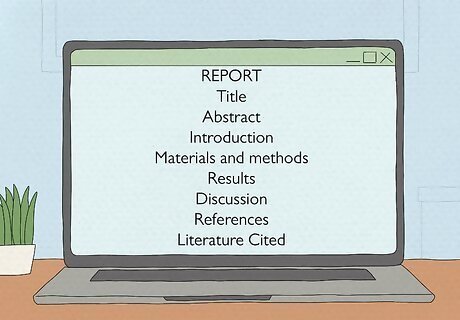
Learn to write a report. Labs taught at the college level will usually require written reports. While the specific method of presentation may vary according to your teacher’s methodology, you can expect your report to include: title, abstract, introduction, materials and methods, results, discussion, references and literature cited. The report must be typed, using the citation format that your instructor requires. The purpose of the report is to persuade others to accept or reject your own hypothesis. Your report will do this by showing the data you found through your research, and your interpretation of the data.
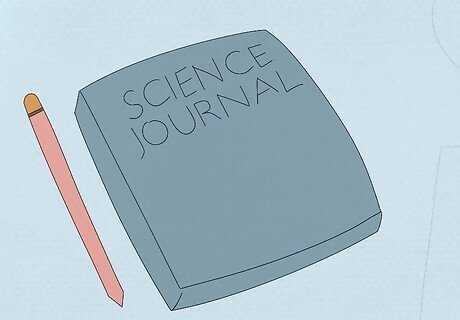
Keep a laboratory notebook. This notebook should be a bound journal, not looseleaf, with numbered pages that are never removed or torn out. It is a permanent record of the observations you make in your lab. You’ll write your lab report based on records you’ve kept in your notebook. Don’t use your lab notebook to keep notes of your classwork, lectures, or other study materials. Develop a system for taking notes in your lab notebook so that all the information you will need to write your report will be easy to find. Thoroughly detailing your lab activities will make writing your lab report easier. Wearing long pants might be required for some labs.

Work effectively with others. Many times, lab experiments are meant to be done by a group of 2 or more students. This means that you probably won’t have time to do the whole experiment on your own, and will need to rely on the group’s efforts. You’ll need to be aware of the results of what others have done in the process, even if you didn’t do it yourself. Part of the learning process in a lab is to learn to work effectively in a group.




















Comments
0 comment